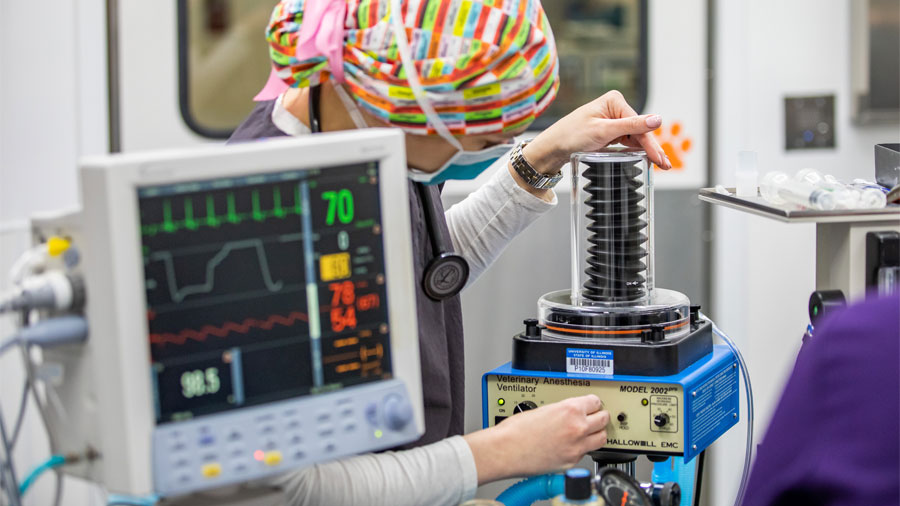You go to the vet’s office with your dog who is having allergy issues … again. After an exam, the veterinarian recommends a new monoclonal antibody therapy. One injection once a month sounds too good to be true, but is it?
Dr. Jennifer Reinhart, a small animal internal medicine and pharmacology specialist at the University of Illinois Veterinary Teaching Hospital in Urbana, provides details about monoclonal antibodies as a therapy.
What Are Monoclonal Antibodies?
Antibodies are proteins the body makes to fight infection. Antibodies bind to specific locations on the infective agent, called antigens. This binding signals the body’s immune system to send white blood cells to clear these infective agents away.
Vaccines work using this same process: they contain a small amount of antigen to stimulate the body to produce antibodies that attack the pathogen.
Dr. Reinhart explains that monoclonal antibodies take this immune process a step further. “They are pre-made antibodies we can give to animals rather than expecting the body to make their own,” she states.
Monoclonal antibodies can be produced in a laboratory by culturing and growing white blood cells from rodents that have been exposed to the antigen of interest. The antibodies produced by these cells are tested against the target antigen to ensure that they bind properly. The selected antibodies are then fused with dog or cat cells to create a fusion protein.
“During the fusion process, the majority of the rodent antibody structure is replaced with that of the species the monoclonal antibody will be used in. However, the antigen-binding part remains,” Dr. Reinhart explains. The fusion process is needed so that the dogs and cats that receive the monoclonal antibodies are less likely to have an allergic reaction to antibodies from a foreign species.
How Do They Work?
Monoclonal antibodies can be used therapeutically in a wide variety of diseases and conditions. They can be used to fight infections, for example, in a new treatment for parvovirus. “In this instance, the monoclonal antibodies are working just like the antibodies the animal’s body produces by itself,” Dr. Reinhart says.
Additionally, monoclonal antibodies can also be used to block specific proteins on an animal’s own cells. Cytopoint is an example of this use. It treats skin allergies by blocking a protein that causes the animal to feel itchy.
“By blocking the protein, the nerves in the skin cannot send the signal to the brain, so the dog feels less itchy and scratches less,” Dr. Reinhart explains.
Two new monoclonal antibodies that function similarly are available for the treatment of pain and inflammation related to arthritis in dogs and cats.
Are They Safe?
Dr. Reinhart states that monoclonal antibodies are generally very safe. “While there is a risk of allergic reaction,” she says, “the process of creating a fusion protein significantly reduces this risk.” Individual monoclonal antibody products may have other risks, so Dr. Reinhart recommends always consulting your veterinarian and the product information before use.
“In general, monoclonal antibody therapies are much less likely to cause an adverse effect than are other drugs used to treat skin allergies and osteoarthritis in dogs and cats,” she says. Monoclonal antibodies have the added benefit of being administered once a month instead of multiple times a day.
Overall, monoclonal antibodies are exciting new therapies that have the potential to treat a wide variety of diseases and conditions. They offer an alternative to traditional therapies and, because they are given as monthly injections, they provide a great option for animals who are difficult to medicate orally.
By Alaina Lamp
Photo illustration from Nappy and Karsten Winegeart on Unsplash




